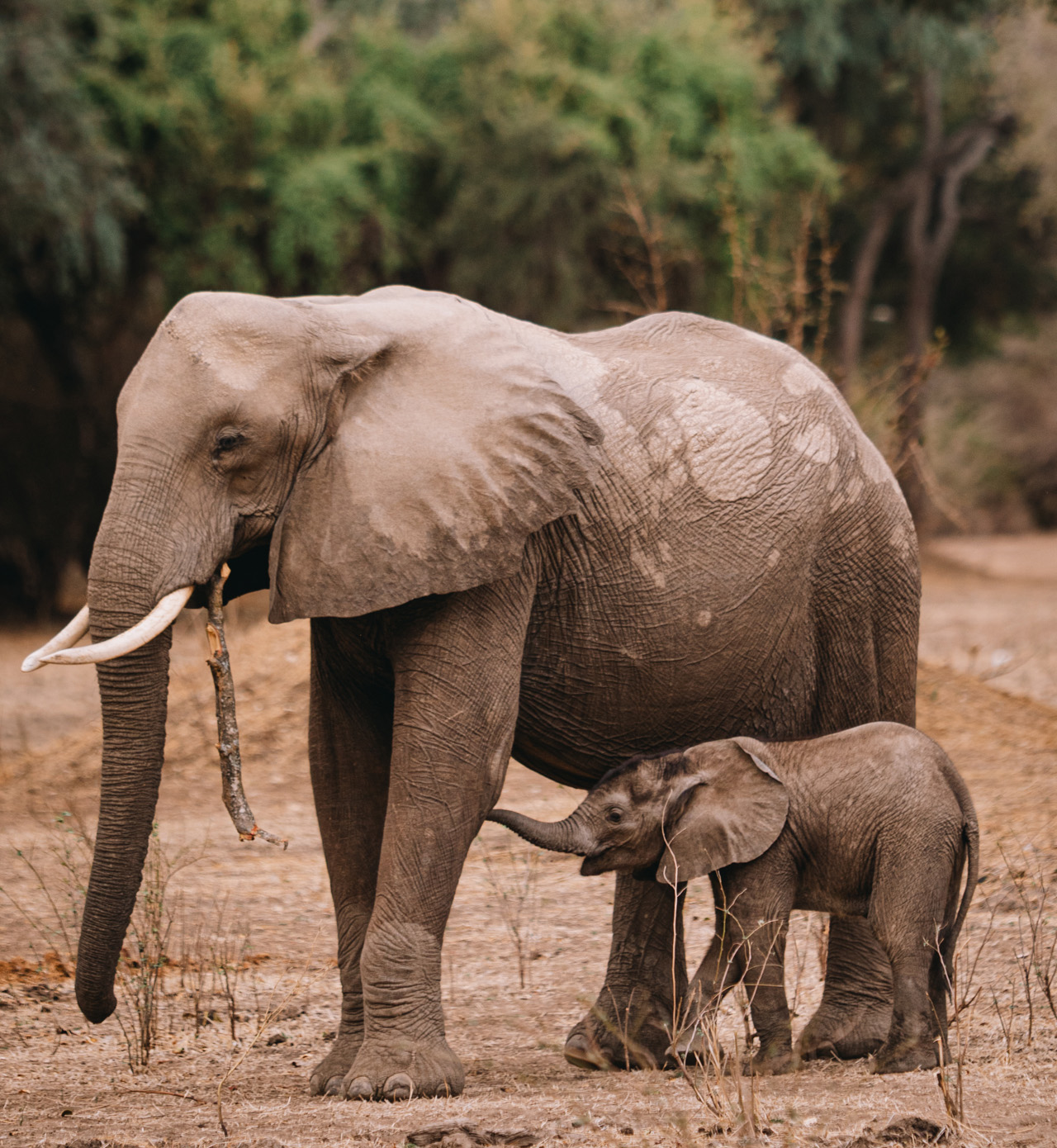
.png)
.png)
An exclusive summary of Akashinga's impact in 2024 written by Sergeant Margaret Darawanda, Deputy Head of Operations at Akashinga East Zimbabwe.
Akashinga's 2024 Impact
In 2024, Akashinga reached new milestones in community-led conservation, expanding our protected areas, and strengthening our impact on wildlife protection. Here are some highlights that have bolstered our confidence as rangers and allow us to imagine, and keep working towards, a different future for our own communities:
Ranger Training & Deployment
We trained 49 new Akashinga Rangers in Zimbabwe and Mozambique and our own LEAD instructors from Akashinga Zimbabwe trained 20 conservation scouts in Botswana in safety and bush survival. I have experienced how this increase in trained personnel has strengthened our capacity to protect wildlife — we can cover larger ground more rigorously, respond to threats more quickly, and engage with a greater number of people in our communities. And importantly, it allows us adequate time to rest and recover as we share our workload.

Wildlife & Patrols
In Zimbabwe, where I am based, we patrolled over 176,900km by vehicle and 19,961km on foot, leading to 371 arrests and the recovery of 29 pangolins. Wildlife sightings increased by 150%, and we also helped resolve 216 human-wildlife conflicts using non-lethal methods (including chilli bricks, firecrackers, and vuvuzelas to scare away animals and keep them safe). In neighbouring Mozambique, rangers carried out 601 patrols, including 48 joint operations, which led to 25 arrests and the disruption of illegal hunting. We also recorded 921 wildlife sightings (a 144% increase since 2023).
These stats invigorate us by proving our work is making a difference to both conservation and the well-being of local communities. The significant increase in wildlife sightings is especially encouraging — suggesting that our efforts are truly helping improve the local ecosystem.
.jpg)
Technology & Research
Akashinga integrated EarthRanger and Skylight AI into Mozambique operations to improve monitoring of illegal maritime activities. Our new Operations Centre in Coutada 5 is also nearing completion, enhancing security, ranger coordination, and conservation training. We are now better equipped to use the resulting data to guide our strategies for stronger conservation.

Reforestation & Communities
Our biodiversity team planted 20,000 indigenous tree seedlings at our Phundundu camp in Zimbabwe, with seeds sourced from local communities. Passing by the nursery almost daily, I can attest that the saplings are flourishing, and the project will allow us to restore forests and re-green communal areas while simultaneously creating jobs and resources for local community members.
In Mozambique, we trained four community leaders in conflict resolution and launched a community turtle guard initiative that immediately saw results in identifying and recovering illegally caught sea turtle, ray, and shark species. These grassroots conservation efforts are an extension of our own work as rangers and help us to create a sense of stewardship for the environment. We are delighted to see the immediate impacts to critical species.

Expanding Conservation
Akashinga expanded into Namibia’s Kunene Highlands (2.5 million acres) through a partnership with Conserve Global and added 1.93 million acres in Botswana’s Greater KTP through collaboration with Kalahari Research and Conservation (KRC). This expansion means greater biodiversity protection improving the resilience of ecosystems to climate change, and human impacts. We look forward to sharing our experiences, skills and knowledge with our partner rangers in these areas.
All these impacts confirm our daily efforts on the ground and show how our work saves biodiversity, restores ecosystems, and strengthens communities. As rangers, we also feel an ethical responsibility to the planet, and I am confident that with further training, technology, and teamwork, we will keep making a difference.



.png)